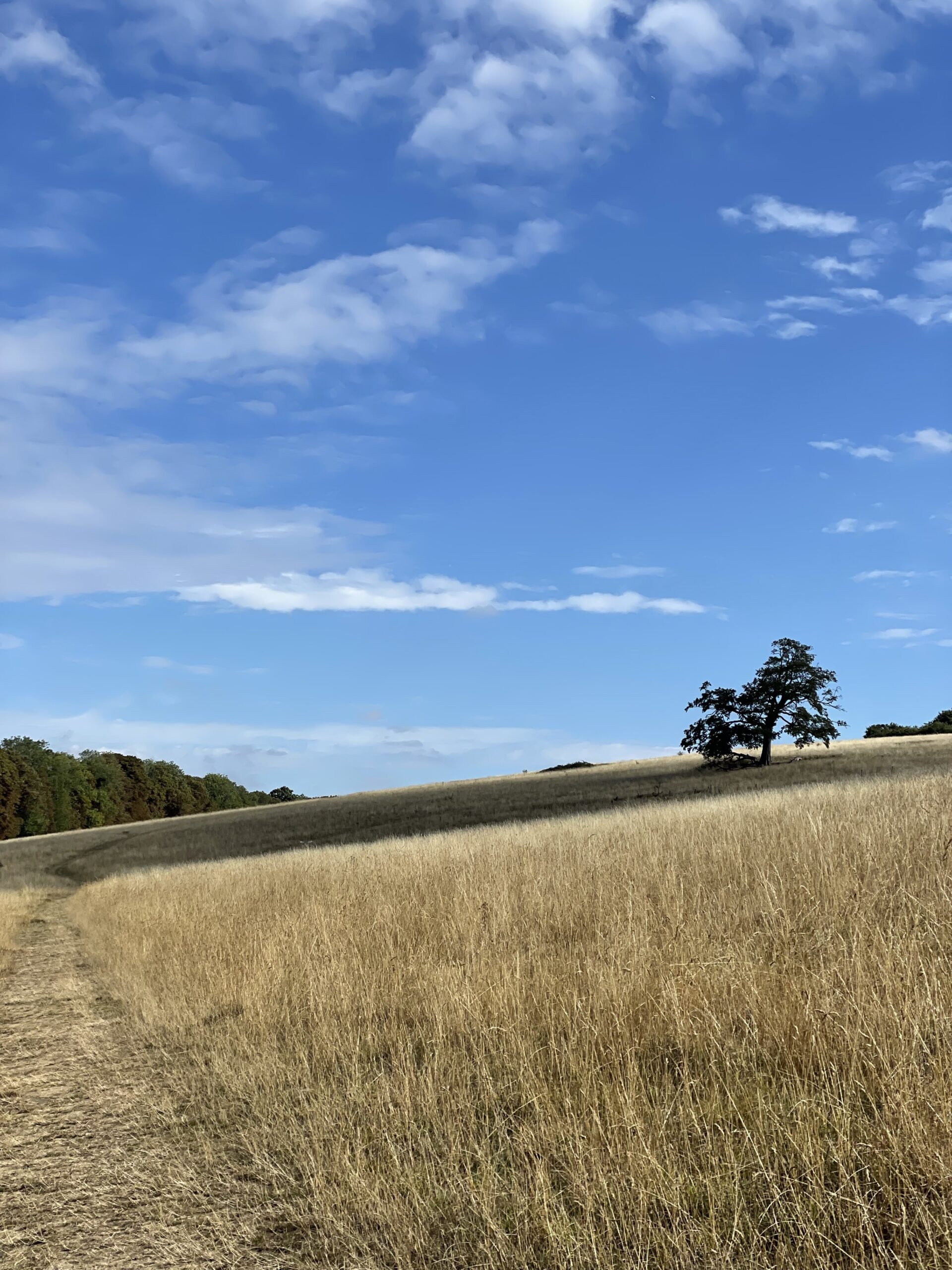Photo by Alicia Healey
Veteran Beech
‘I see a picture that thy fate displays / And learn a lesson from thy destiny’ – John Clare, ‘To a Fallen Elm’
We call it ‘the tree field’, where my sister and I walk her dog. Surrounded by nothing stands a solitary beech. I remember it whole, this lodestar, but its known silhouette has been marred since winds amputated a top branch. And, after a long absence, I find its sturdy trunk hollowed to a charred shell, ignited by vandals, who seem not to know what they do. It is being used as a bin: I peer in and see a gaudy pile of drink cans and crisp packets, bottles and cigarettes. It feels intrusive to look, inspecting like a haruspex. I look away. Still it stands, its green leaves susurrating. Ancient trees can withstand becoming hollow: the decay inside their heartwood rarely touches the living sapwood. But I sense an old beginning. If this tree should fall, it will be like the death of a sun, and the empty sky will be unforgiving.
March
The air is thickening with bird call and echo like coffee-shop chatter: enveloping but exclusive conversations. Filling with butterflies, sun flares and perspiration. Sweet with violet, primrose and daffodil. I love it but I also love the clarity of winter – cling to frosts which encase all of nature, making a museum or a myth of it, a freeze- frame blown from Narnia. The brain can stumble through its poverty of light, but at least it’s true: the land stripped, irreducible. Each leaf or petal stirs a memory, as though winter zipped up the coats of our minds, now unzipping.
Ink
When it flows from a gold nib on smooth white paper, words glisten with more – more of what could be said – more care, and possibility. Its new blood sparks something that lights something else that speaks what I didn’t know I wanted to say. Think of what stays quiet, screened out by the regime of typing, how it fires clay before it’s been moulded. A direct line to the brain, but doesn’t seem to surge through our veins. Traces of unfound feeling hang somewhere, like the cursive tails we so painstakingly learned to join up, with our hands held. Our school desks still had inkwells: their emptiness enthralled – the silent story it told. Finger-smudges and graffiti stained the wood grain with the secreted lives of girls who had gone before us. In a handwritten letter, words wear the writer like scent. Something this sheer is easy to lose sight of, and then to lose. Aching fingers have almost forgotten how to hold a pen. A typed signature, or blank space, seems so forlorn, unclaimed, an oxymoron, really just back to ‘X’, your flourish is unrequired, and some hands won’t know that a clear inky voice never known is still lost.
